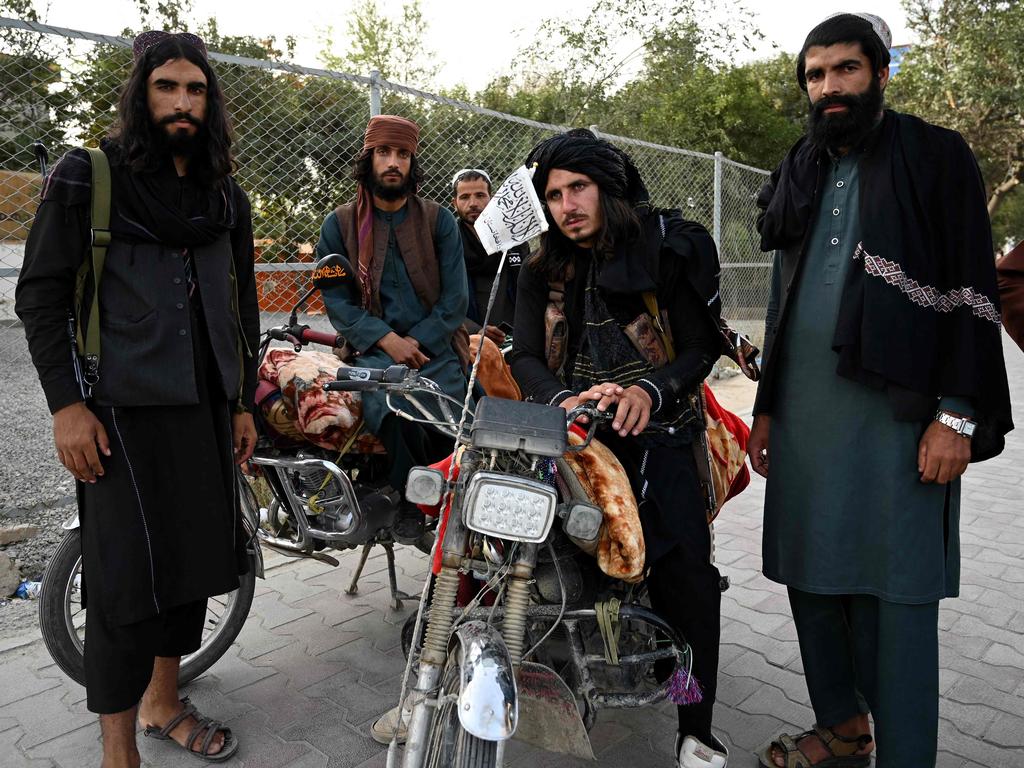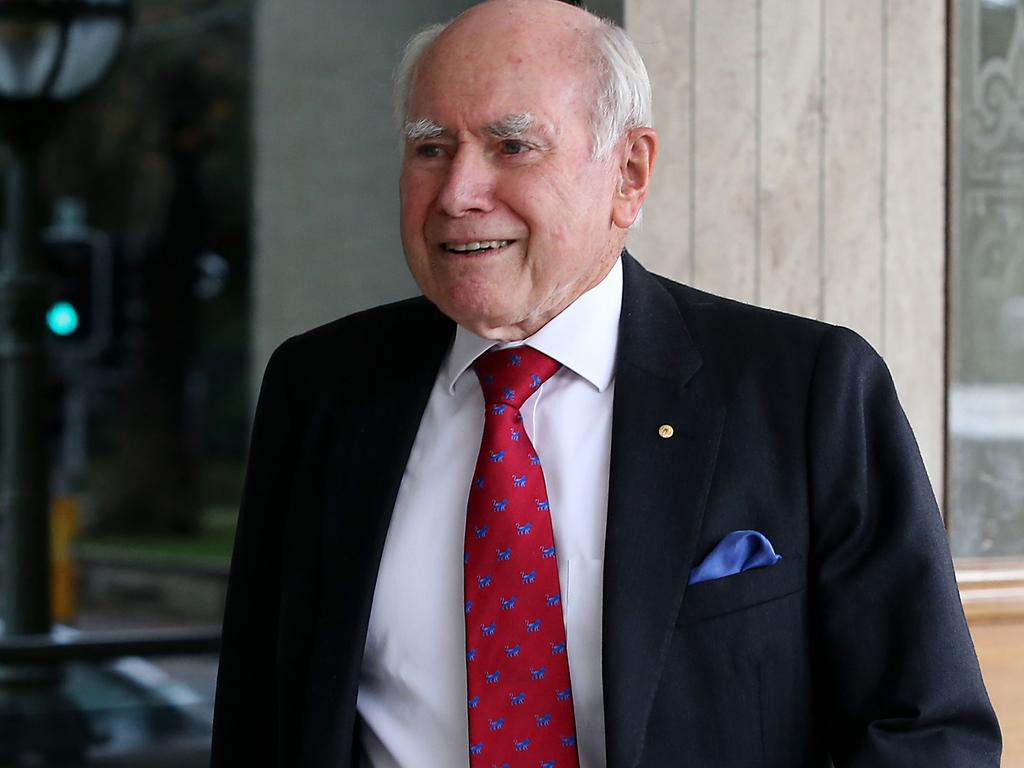First evacuation flight lands in Perth amid rescue bid boost as Taliban hunts ADF support staff
Scott Morrison has confirmed 60 more Australian citizens and locally engaged Afghan staff have been airlifted out of Kabul overnight, as the first RAAF flight lands in Perth.

Scott Morrison has confirmed 60 more Australian citizens and locally engaged Afghan staff have been airlifted out of Kabul overnight, but warns the chaotic scenes in the city means there’s no recourse to collect people who are trapped.
The additional evacuees brought the total to 160 since Kabul fell to the Taliban. But with interpreters and other former staff reportedly trapped in the city, the Prime Minister said it wasn’t possible for the Australian Defence Force to move outside the secured international airport.
With Taliban-controlled checkpoints through Kabul and thousands of desperate people crowding around the airport, Mr Morrison said the “biggest challenge” in the evacuation currently was getting people to the evacuation flights.
“The situation in Kabul remains chaotic. We are engaging in constant messaging, and contact, where we can, with those we’re seeking to evacuate. Operations and Defence Force and others beyond the airport are not possible,” Mr Morrison told journalists on Friday morning.
“They are not able to be undertaken in any way by the Australian Defence Forces. To do so would put them at great risk, with no commensurate benefit.”
Mr Morrison said he had spoken to the Crown Prince of Abu Dhabi, Mohamed bin Zayed Al Nahyan, and thanked him for the “tremendous support and cooperation”.
It came just hours after an RAAF flight carrying more than 90 Australians and Afghan interpreters landed in Perth on Friday morning after evacuating Kabul earlier this week.
West Australian Premier Mark McGowan said arrangements had been put in place as early as Sunday to prepare for the flight’s arrival.
The evacuees have now been transported from Perth International Airport to the Hyatt hotel in the city centre, where two floors have been cleared to accommodate them.
“These evacuees are a mix of Australians and visa holders, obviously mainly the interpreters and the like that assisted our defence forces in Afghanistan,” said Mr McGowan.
Meanwhile, Australian officials on the ground in Kabul are stepping up efforts to get citizens and Afghan support staff on evacuation flights, amid ongoing chaos at the city’s airport and house-to-house searches by the Taliban for those who worked for foreign governments.
The evacuees landed in Perth after a British military flight airlifted 76 Australian citizens and refugee visa-holders to safety in Dubai on Thursday.
Afghans who worked for the Australian Defence Force but had not yet received their visas were also being considered for evacuation on fresh mercy flights.
Biometric data, collected when interpreters commenced their employment for the ADF, was being used by Department of Foreign Affairs and Trade officials on the ground in Kabul to check the identity of potential evacuees, including those without approved visas.
Australian officials were trying to arrange a landing slot in Kabul on Thursday night for an RAAF C-17 transporter, with capacity for at least 134 passengers, as Scott Morrison vowed to continue the rescue effort for as long as US and British troops were able to maintain security on the ground.
“We expect to be able to continue them now throughout the course of this week and next week, moving urgently, safely, because we are taking nothing for granted,” the Prime Minister said.
A federal government source said the fact the US had so many people with approved visas to evacuate could help those with Australian links by potentially drawing out the evacuation effort for up to a month.
With an extra 40 ADF personnel arriving at the airport to provide security, DFAT urged those who remained in hiding to make their way to the airport, while warning of “large and potentially volatile crowds”.
“We are continuing to contact those Australians and visa-holders and to support them, where we are able to, to get through those checkpoints and into the airport,” Foreign Minister Marise Payne said.
The ongoing airlift came amid reports from the Afghan capital that Taliban fighters were intensifying their search for anyone linked to foreign forces, or members of their families.
The Islamist fighters reportedly had a list of people they wanted to question and punish, together with their locations, according to a confidential UN document.
Kabul’s civilian airport was again a scene of havoc, with the Taliban reportedly refusing to allow Afghans entry and women and families being caught between gunfire and Taliban supporters attacking those trying to escape the country. “The most dangerous place in Afghanistan right now is Kabul airport,” said former UN and US State Department official Rina Amiri.
Late on Thursday, 102 Australians and Afghans with Australian links had been brought to safety: 26 on an initial Wednesday flight, and 76 on Thursday.
A senior federal government official said: “We are continuing to process visas. We are being relatively flexible, within reason.”
Mr Morrison said an announced 3000 refugee visas for Afghans this year was “a floor, not a ceiling”, and the government was continuing to identify potential candidates in co-operation with Afghan community groups.
The first signs of resistance to the Taliban had also begun to emerge, with protests in the eastern cities of Jalalabad and Khost against the Islamists, who provoked further anger on Wednesday by shooting into crowds of demonstrators.
Ahmad Massoud, the son of Afghanistan’s most famous anti-Taliban resistance hero Ahmad Shah Massoud – who led the northern resistance against the Soviets and then the Taliban from the Panjshir Valley – issued a public call to arms for international support for a resistance force once again prepared to take on the Taliban. “We have stores of ammunition and arms that we have patiently collected since my father’s time because we knew this day might come,” he wrote in the Washington Post.
“We also have weapons carried by Afghans who, over the past 72 hours, have responded to my appeal to join the resistance.”
The international community also began turning off the aid tap, with the International Monetary Fund suspending a scheduled $460m payment to the Afghan government because of a “lack of clarity within the international community (on) recognition of a government in Afghanistan”.
The EU, Germany, Britain and Canada suspended all but humanitarian aid while the US blocked access to billions of dollars of Afghanistan’s cash reserves held in US institutions. More than half the country’s $5bn annual budget was met by foreign aid.
While the Taliban has lucrative income streams from the narcotics trade, Afghanistan’s former central bank governor Ajmal Ahmady said Afghans faced a “dire” economic future, with the suspension of dollar shipments from its $US9bn in cash reserves likely to drive up food prices. “It’s going to be quite dire. People will not be able to access the funds they need from the banking sector,” he told the Financial Times.
In its first press conference this week, the Taliban insisted it had matured since it was last in power and would form an inclusive government that would ensure a peaceful Afghanistan that upheld the rights of all citizens under a sharia law framework.
The appearance of senior Taliban leader Anas Haqqani in talks in Kabul with former Afghan president Hamid Karzai over a new Taliban government has raised fears the new regime will be as draconian as the last.
The Haqqani Network, a key faction of the Taliban made up of hard-core fighters, has been accused of some of the most deadly militant attacks in Afghanistan.







To join the conversation, please log in. Don't have an account? Register
Join the conversation, you are commenting as Logout